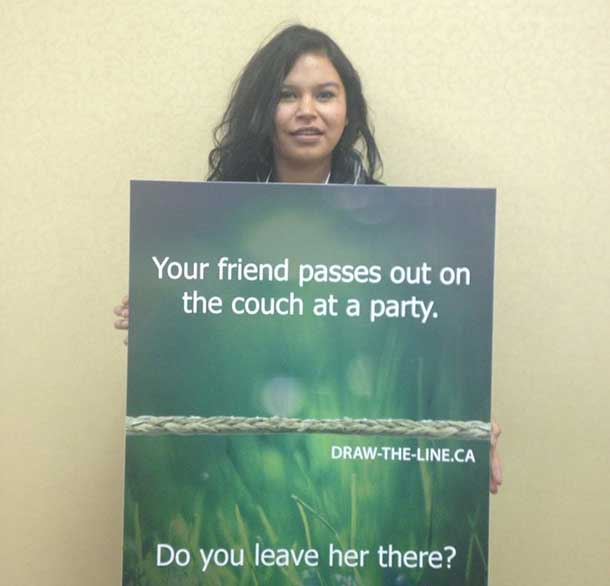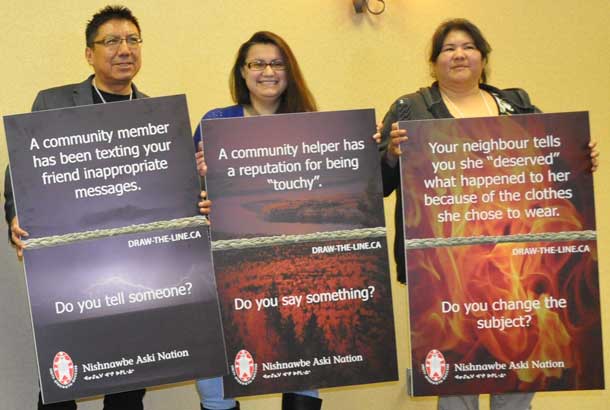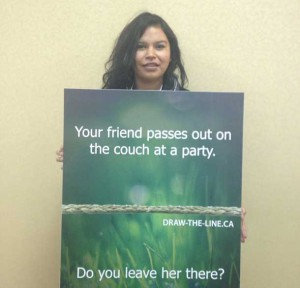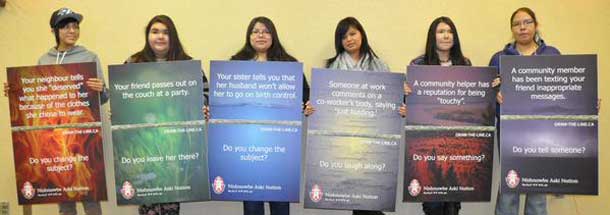

NAN Draw the Line Campaign Targets Violence Against Women
THUNDER BAY – LIVING – Nishnawbe Aski Nation (NAN) Deputy Grand Chief Alvin Fiddler and NAN Women’s Council spokesperson Jackie Fletcher joined with First Nation leaders from across NAN today to launch an education campaign to help recognize and prevent sexual violence.
“Sexual violence, especially acts against women, is far too common and has devastating impacts on the health and well-being of not only the victims and their families but entire communities,” said Deputy Grand Chief Alvin Fiddler, who holds the women’s directorate portfolio. “Sexual violence can and must be stopped, and I am pleased to support this exciting new campaign.”

NAN’s Draw-the-Line campaign is part of a national interactive campaign that aims to engage First Nations people and all Ontarians in a dialogue about sexual violence. The campaign challenges common myths about sexual violence and equips bystanders with information on how to intervene safely and effectively.
The campaign is not limited to First Nation communities, but aboriginal women are at increased risk of experiencing sexual assault. On-reserve rates are seven times higher for sexual assaults compared to the rest of Canada. Aboriginal women are almost three times more likely than non-Aboriginal women to report having been a victim of a violent crime.
“The impact of sexual violence can differ from victim to victim. Some experience suicidal thoughts or destructive behaviour, others withdraw from society and isolate themselves, and some try and act as if nothing has happened,” said NAN Women’s Council spokesperson Jackie Fletcher, a member of Missanabie Cree First Nation. “Draw-the-Line will help people recognize sexual violence and empower them to make a difference, and I look forward to educating our women and our men through this campaign.”
The Draw-the-Line campaign was launched at the opening of the NAN Women’s Forum 2015 (Feb. 13-15). A website, www.draw-the-line.ca has been established with an accompanying series of interactive informational scenario ‘postcards’ to help people identify inappropriate behaviour.
A manual is also available to help individuals and organizations implement the campaign.







